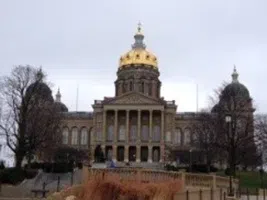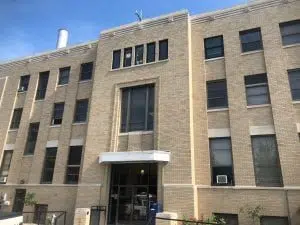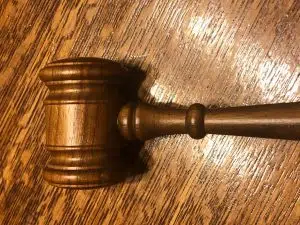(Des Moines) The Iowa House passed legislation Monday to increase training for local officials on open meetings and information laws and raising penalties for violations.
It’s the second year the House has moved on this issue — a similar measure passed in 2024 and made it to the governor’s desk, but was ultimately vetoed after an amendment was attached at the last minute that public records advocates said was counterproductive.
House File 706 is largely the same bill, but it does not contain the change to the definition of a “meeting” by a government body that Gov. Kim Reynolds cited as an issue in her veto of the 2024 measure. However, it does make many of the same changes to penalties for violations. The bill sets fines for open meetings law violations between $500 and $2,500. Under current law, fines are between $100 and $500. The fine for knowing violation of these laws would be $5,000 to $12,500, up from range in current law of $1,000-$2,500.
A court would also be required to remove a member of a government body from office if the member engaged in a prior violation of open meetings laws regardless of if damages were assessed against the person during their term — a current prerequisite in Iowa law.
Newly elected and appointed public officials would be required to complete a training on open records laws under the legislation, with the Iowa Public Information Board providing or approving at least one course at no cost.
Rep. Gary Mohr, R-Bettendorf, said he introduced the legislation for the same reason he introduced the bill last year — to address specific violations of these laws in Davenport. Since a six-story apartment building collapsed in 2023 resulting in three deaths and one amputation, the Davenport city government has not released city building inspection reports before the collapse, Mohr said.
“Did city inspections indicate a potential collapse? We don’t know,” Mohr said. “Should the building have been vacated as unsafe for occupancy? We don’t know. Was the building owner notified of changes that needed to be made to the structure” We don’t know. We don’t know, because in nearly two years, the city inspection reports and other information about the building collapse have been withheld from public view. We do know that Davenport residents who filed freedom of information requests have not only been denied access to these public records, but they themselves have been sued by the city.”
The city of Davenport and former city attorney Tom Warner also face a lawsuit filed in January 2024 alleging violations of open meeting laws. The lawsuit alleges Warner and the city had reached settlements with three city employees without the city council’s approval before the body ratified the settlement agreements following a closed session.
In April 2024, a judge allowed the Iowa Freedom of Information Council to intervene in a case where the city of Davenport filed a civil action against a city resident who had made an Open Records Law request to gain access to a letter sent by the former city administrator, Corri Spiegel, to city lawyers.
Mohr called for support of the measure, saying lawmakers should stand with Davenport residents seeking to “hold our public officials accountable so this never happens again.”
“To the people of Davenport and the Iowa Quad-Cities: We in this room hear your disgust and frustration,” he said. “And today, I hope the Iowa House Representatives stands united with you to get answers, to hold public officials accountable and to increase information and transparency.”
Rep. Daniel Gosa, D-Davenport, thanked Mohr and other state lawmakers for their work on this measure, saying it was an urgent issue to him as a Davenport resident and as the former Davenport school board president.
“We need to hold our mayor and city council accountable,” Gosa said. They do have some things to answer for, and we’ve been dealing with this for a long time.”
The legislation moves to the Iowa Senate for further consideration.







